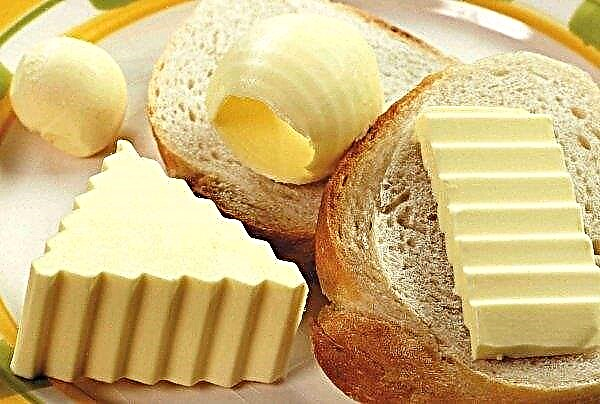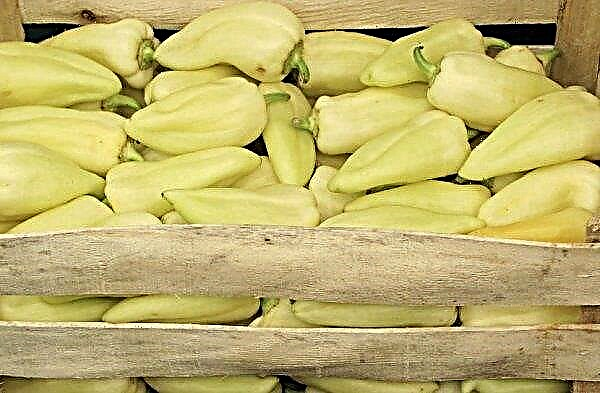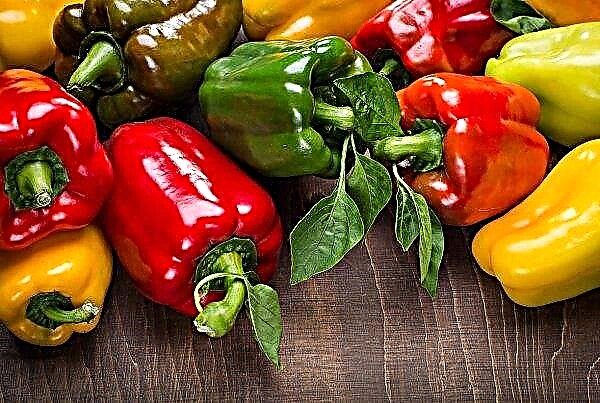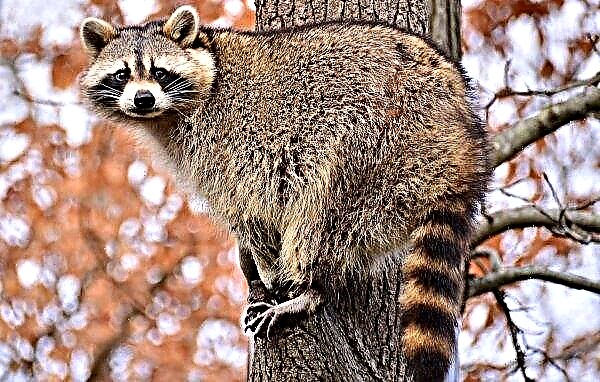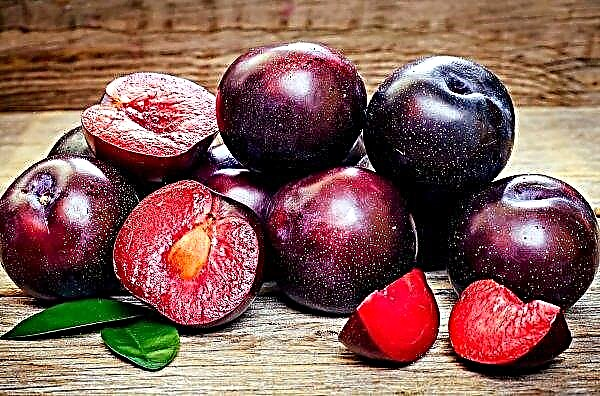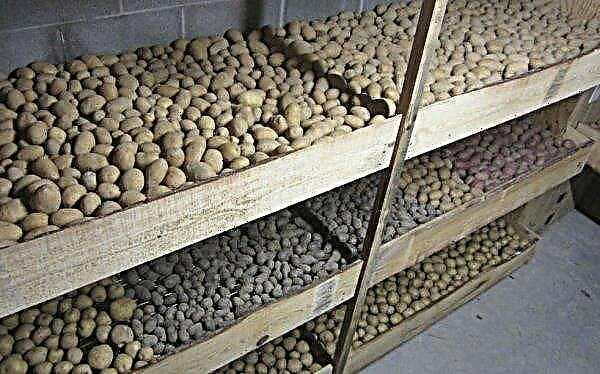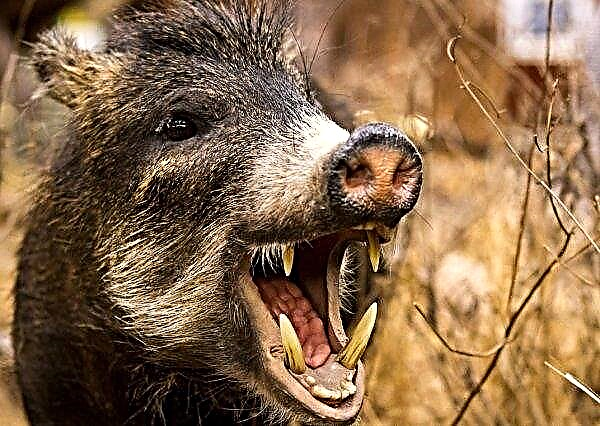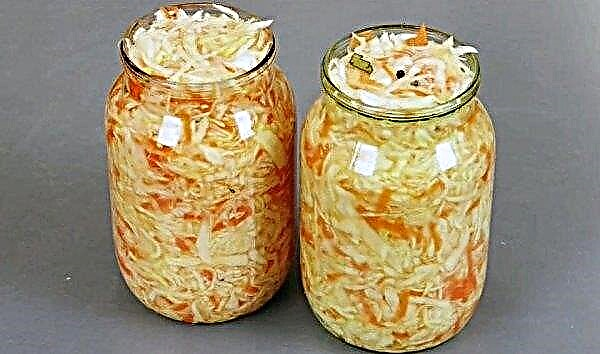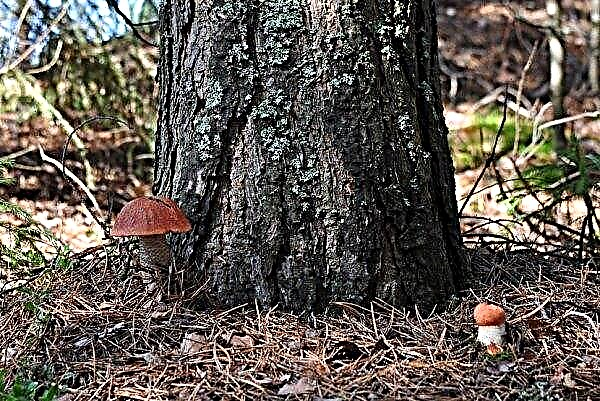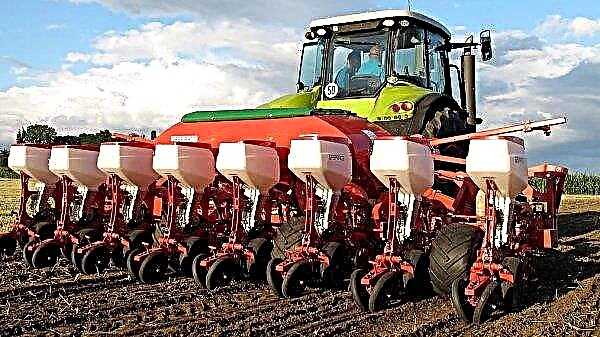The correct maintenance of domestic duck includes not only providing the bird with conditions as close as possible to the natural habitat, but also a competent approach to choosing a diet. It is widely believed that ducks are omnivores and can be fed leftover from the table. Is this so, is it possible to feed poultry with bakery products, and what products must be included in the daily diet - in more detail below.
Features of the digestive system of ducks
Despite the fact that domestic duck conditionally refers to an omnivorous bird, the device of its digestive system is characterized by high-quality digestion of plant foods. The soft form of the beak with small serrated plates is necessary for filtering water from the vegetation, and the small protruding “claw” of the beak is necessary for cutting off the grass.
It is noteworthy that due to the presence of a powerful enzyme in the pancreas, the digestion process occurs very quickly - due to the continuous release of a large amount of gastric juice, the production of which increases with each meal. Thus, food does not linger in the stomach (which, incidentally, is relatively small), but passes into the colon.Did you know? The largest number of domestic ducks is registered in China - the annual production of this bird is at least 2 million heads. Least of all - in Latin America, where the content of domestic duck is not popular, since its meat is practically not eaten.
 To the question, what kind of food can be fed to domestic birds, the answer is simple - mainly vegetable: the high-calorie and heavy food is not able to digest the stomach of these birds.
To the question, what kind of food can be fed to domestic birds, the answer is simple - mainly vegetable: the high-calorie and heavy food is not able to digest the stomach of these birds.Can ducks be fed bread?
Bread and its derivatives are high-calorie foods that quickly saturate, but do not carry any beneficial substances. For example, if plant food is quickly digested in the stomach of a bird (because of this, the feathered can eat up to 3 kg of grass per day, and spend most of the day looking for food), then it can take up to 12 hours to process the bakery product.
This feature of digestion indirectly answers why it is often impossible to feed poultry with bread and other high-calorie foods (including potatoes, milk porridges, sweets, cookies, etc.):
- from such products the bird is quickly saturated;
- loses the ability to independently search for food;
- begins to gain weight;
- runs the risk of stopping flying - body fat does not allow the bird to quickly use wings during flight.
 When a bakery product enters the intestines of a duck and mixes with gastric juice, it swells and increases several-fold, in most cases causing blockage and severe bloating, which causes discomfort and even pain to the bird. In addition, bread and its derivatives can lead to:
When a bakery product enters the intestines of a duck and mixes with gastric juice, it swells and increases several-fold, in most cases causing blockage and severe bloating, which causes discomfort and even pain to the bird. In addition, bread and its derivatives can lead to:- Obesity
- immobility;
- reduced bird life expectancy.
Of course, such consequences threaten only in the case of constant (or frequent) feeding of poultry with a bread product, in isolated cases, the use of these products does not endanger the feathered health.Important! High-calorie buns, pies and cookies are digested for a very long time in the duck’s gastrointestinal tract - this threatens not only stagnation of food and impaired functioning of the intestines, but also the appearance of cyanobacteria and fungal diseases of the intestine.
White
White bread (as well as loaf, fresh buns, pies, etc.) is the highest-calorie product of all bakery products, but it can sometimes be given to ducks. A very important point: in its pure form, such bread should not be given!  A small addition of dried and chopped white bread to the mixers is allowed (cereals, grains), in order to increase the calorie content of food. In this case, the addition of a small amount (20-30 g.) Of crushed dry white bread should not exceed 1 time per week - this complementary foods is permissible if it is necessary to quickly increase the weight gain of the duck, in cases of lack of food as such, or with a significant decrease in temperature in the cold season (from –15 ° С).
A small addition of dried and chopped white bread to the mixers is allowed (cereals, grains), in order to increase the calorie content of food. In this case, the addition of a small amount (20-30 g.) Of crushed dry white bread should not exceed 1 time per week - this complementary foods is permissible if it is necessary to quickly increase the weight gain of the duck, in cases of lack of food as such, or with a significant decrease in temperature in the cold season (from –15 ° С).
Black
For ducks, this product is almost deadly.because the duck’s stomach is not suitable for digesting brown bread containing malt and spices. For this reason, it stagnates in the intestines, starting the fermentation process, which produces the appearance of fungi and knots. This, in turn, causes severe intoxication of the body and the bird will surely die.
With mold
Mold on bread is just as harmful to poultry as it is to humans. Moldy bread, getting into the body of a bird, very often causes aspergillosis disease - a fungus infection of almost all internal organs. Mortality in this case occurs within 36–48 hours. Therefore, it is categorically impossible to feed ducks with spoiled buns - just like any other poultry and animals.
Therefore, it is categorically impossible to feed ducks with spoiled buns - just like any other poultry and animals.
Did you know? Only females have the ability to quack. And unlike other birds, their quacking does not have an echo - thus, a predator can detect a duck only in its immediate vicinity, which in the wild increases its survival.
How to feed a bird
The list of products that can be fed domestic ducks is quite extensive. The main condition for such food is the saturation of fiber, minerals and vitamins, which ensures not only the proper functioning of the digestive system of the bird, but also the health of the bird as a whole:
- cabbage (white and cauliflower);
- varietal salad;
- cucumbers
- corn;
- Tomatoes
- pumpkin;
- zucchini;
- eggplant;
- beet;
- peas;
- oats;
- duckweed, fresh grass;
- seeds, grains;
- cake, makukha, bran, etc .;
- banana pulp (in a small amount, t. to high-calorie bananas);
- a pineapple;
- watermelon;
- melon;
- apples
- pomegranate seeds;
- fish flour.
 This list is far from complete, however, these products can fully provide the animal with all the necessary trace elements and vitamins.
This list is far from complete, however, these products can fully provide the animal with all the necessary trace elements and vitamins.
Important! It is necessary to regularly clean the feeder of old food debris, and treat the drinker and feeder with antibacterial natural preparations every month: this will prevent the appearance and development of mold and fungal diseases.
Prohibited duck foods
In addition to bakery products, the following should not be present in the diet of domestic duck:
- sweets, candies and chocolate - very harmful and high-calorie foods that cause obesity;
- spicy, salty and pepper foods - irritates the mucous membrane and feathered receptors;
- onion and garlic - causes nausea in the bird, in some cases fatal outcome is possible;
- nuts
- avocado - deadly poisonous to all birds, without exception;
- tomato tops;
- celandine, bleached, nettle - poisonous herbs for ducks;
- milk porridge - such a product disappears after 1 hour, so only freshly prepared porridge is allowed to feed, and then in rare cases;
- boiled potatoes and flour - These products stick together in the mash, and make the passage of the main food difficult.
 The correct diet of domestic duck is the predominance of plant foods. To ensure good productivity and the health of birds it is necessary to exclude bakery products and other prohibited products.
The correct diet of domestic duck is the predominance of plant foods. To ensure good productivity and the health of birds it is necessary to exclude bakery products and other prohibited products.


